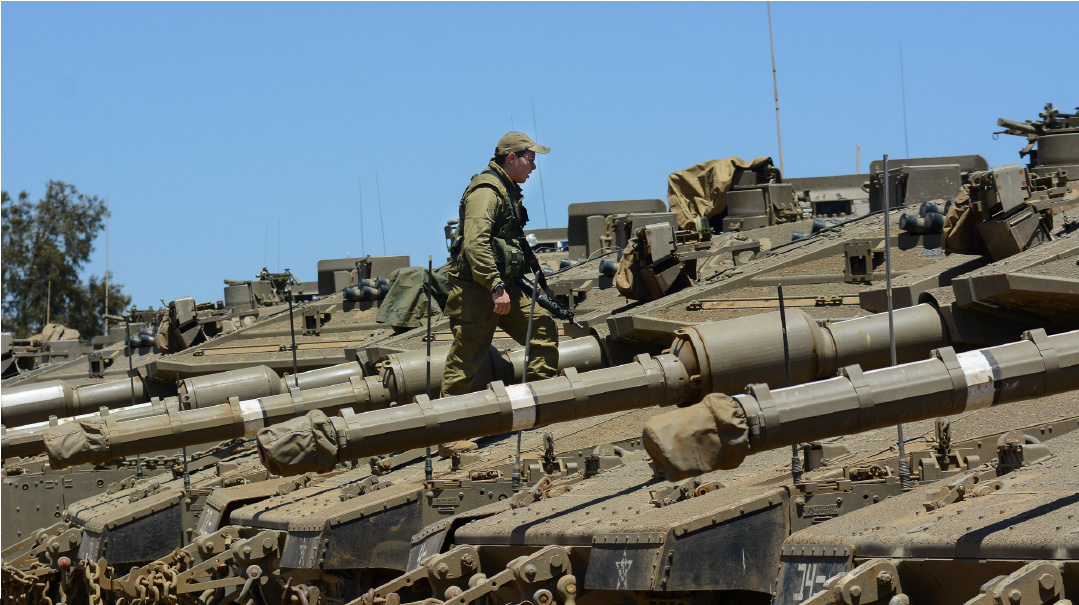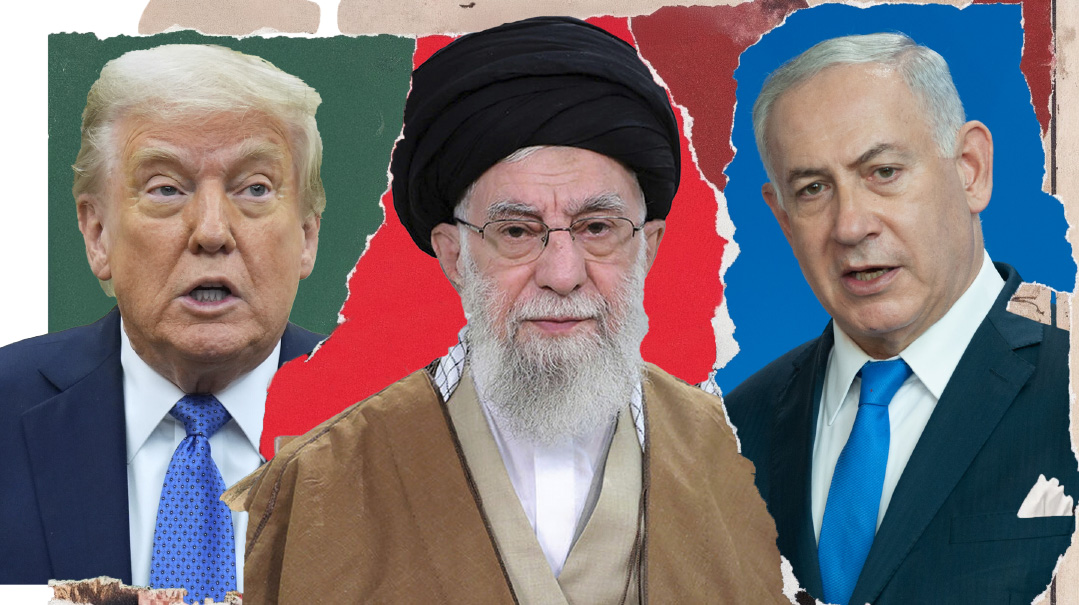Could Israel Run Out of Weapons?

“With or without British arms, Israel will win this war and secure our common future”

Photo: Flash90
The UK’s recent decision to stop selling certain arms to Israel has raised concerns about the level of Western support Prime Minister Binyamin Netanyahu’s government still enjoys, particularly as Israel faces the prospect of a multifront war. Netanyahu, defiant as ever, responded by stating: “With or without British arms, Israel will win this war and secure our common future. Instead of standing with Israel, a fellow democracy defending itself against barbarism, Britain’s misguided decision will only embolden Hamas.”
The UK’s move seems to be more symbolic than materially significant; some 95% of Israel’s arms imports come from the United States, Germany, and Italy. Nonetheless, the Israeli government is acutely aware that isolating itself from the West amid a yearlong conflict is far from a wise strategy.
How serious a precedent is the UK’s move for Israel? Could Israel face an arms shortage? Can it achieve self-sufficiency in weapons production? And how might the upcoming US elections affect Israel’s stock of military supplies?
We discussed these issues with two experts:
Ofer Shelah, former MK, director of the Israel National Security Policy research program at the Institute for National Security Studies (INSS) in Tel Aviv.
Dr. Yehoshua Kalinsky, Senior Fellow at the INSS, specializing in armaments, particularly in nuclear and laser technology.
Here are the takeaways from our discussion.
Could the UK’s decision to stop selling arms to Israel have a significant military impact?
No. The suspension affects only 30 out of more than 350 military products the UK exports to Israel, and the vast majority are aircraft parts that can be sourced from other international markets. In fact, the spare parts for the F-35 fighter jets have not been impacted by the decision. Ironically, the UK itself imports billions of dollars’ worth of Israeli arms, including missiles and drones, and conducts joint air force training exercises. So there’s a certain level of hypocrisy at play here.
Could this spark a trend against Israel, given that the Netherlands, Italy, and Spain have made similar moves since October 7?
All the countries that have chosen to suspend arms sales buy more Israeli products than they sell to Israel, so there is evidently a political motivation behind this. However, none of these nations would dare impose a total embargo, Israel can source the products it buys from them in other markets. And what they buy from Israel, they can obtain only from the Jewish state. No European country, including the UK or Spain, would ever fully embargo Israel — it would hurt them more than Israel.
Germany is Europe’s largest arms exporter to Israel. Is it expected to follow the lead of its European Union peers?
No. Germany is unlikely to jeopardize its military relationship with Israel. It imports billions of dollars’ worth of Israeli arms and entire defense systems.
What other markets could Israel turn to for arms?
Israel purchases weapons from nations other than the Western powers, and while alternative markets are worth considering, experts recommend not abandoning Western powers as military trade partners. Nonetheless, Serbia’s arms exports to Israel have grown significantly during 2024.
Does Israel face any significant shortages in military equipment?
Israel doesn’t currently have any shortages of particular weapons, but ammunition is in short supply. This is a global issue. Aircraft, tanks, and submarines can be found on the market — but ammunition is scarce because of the major conflicts currently underway in Ukraine and the Middle East, and the rising tensions between Taiwan and China. In response, Israel has begun manufacturing ammunition locally.
Why is the Western world turning its back on Israel at this critical juncture?
Israel’s actions on the world stage have consequences across various domains, not just defense. While some of these decisions are politically driven, and Israel may feel justified in its actions, international legitimacy remains crucial. Israel can’t afford to act as though it has the moral high ground without considering the international ramifications. In the end, Israel depends on the global system.
Since October 7, how important is it for Israel to boost its domestic arms production to reduce dependence on foreign suppliers?
Since October 7, Israeli authorities have taken note of the need to be as militarily self-sufficient as possible. However, there are economic complexities that preclude absolute independence. If Israel were to provide for all its own defense needs, over half the national economy would go toward that effort. Basic economic principles teach us about “comparative advantage” — there are many products that are not advantageous for us to produce ourselves, and the scale of what we need doesn’t justify building a national production system for them. Careful consideration is necessary here.
Can Israel handle a three-front war in Gaza, the North, and the West Bank?
Israel is engaged in a war against a coalition, with Iran at the helm. If Israel tries to fight this war alone, it risks its very existence. This conflict is far more complex than just Gaza or the North — it’s a broader Middle Eastern struggle with global implications. Israel is not merely battling Hamas or Hezbollah, but an entire system led by Iran. To succeed, Israel must build a regional coalition with countries that share similar interests. The path Israel is currently on, pushing away potential partners, risks leaving it to face these threats alone — and that’s a dangerous position to be in.
(Originally featured in Mishpacha, Issue 1028)
Oops! We could not locate your form.







